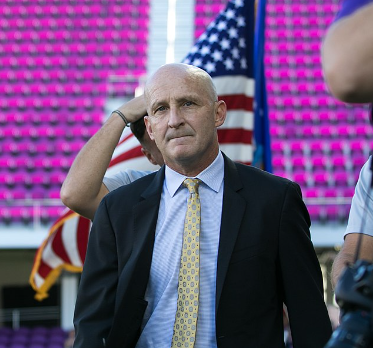Women’s Soccer Speaks Up on Systemic Abuse

A series of reports of abuse in the National Women’s Soccer League (NWSL) sparked concern from players and staff on league safety. On Monday, Oct. 3, attorney Sally Q. Yates and her legal team at King & Spalding released a report after the US Soccer Federation (USSF) interviewed over 200 members of the NWSL, revealing that these reports were not just random and were part of a bigger systemic problem.
“Our investigation has revealed a league in which abuse and misconduct—verbal and emotional abuse and sexual misconduct—had become systemic, spanning multiple teams, coaches, and victims,” Yates said in her full report on the inappropriate behavior in professional women’s soccer.
Players reported on the long lasting emotional damage that coaches were inflicting upon them. Sinead Farrelly, who played for the Portland Thorns FC under the coaching of Paul Riley, is a prominent example of a player affected by this abuse of power.
“I realize now I was not okay,” Farrelly said in The Athletic. “I couldn’t function under him. I couldn’t function to play soccer anymore.”
Paul Riley, professional women’s soccer coach and former lower-men’s division soccer coach, is now facing multiple allegations of sexual misconduct which led to the removal of him from the league.
“After each encounter, [I] tried to pretend it had never happened,” said Farrelly to The Athletic.
Emotional abuse and manipulation led to women feeling as if they had to keep quiet about their situation. This behavior is not exclusive to Riley, however. This conduct was seen in many other NWSL coaches who have been exposed for misconduct, such as the head coach of Racing Louisville FC, Christy Holly.
“The misconduct began prior to his tenure at Racing Louisville and continued throughout,” Yates said. “It involved sexual contact, coercive text messages, abuse of power, and retaliation.”
Additionally, there were many examples of Holly having abusive relationships with players that would lead to him being asked to leave the team mid-season. After leaving, Holly would continue to work for the league. The allegations against him and reasons for his departure from teams were kept hidden.
“Players would raise concerns, but the teams, the league and the United States Soccer Federation would either minimize them, blame players for trying to harm the league, or ignore the stories altogether.” Kurt Streeter said in The New York Times.
These conditions have sparked concerns from players about training facilities and locker room situations that all lead back to the systemic problems that needed to change in the NWSL. In hope of changing them, Yates listed recommendations for how to stop the abuse.
“We make a series of recommendations aimed at preventing abuse in the future, holding wrongdoers accountable, enhancing transparency, and fostering a professional environment where players are treated with respect,” Yates said.
These recommendations set a framework for what should be expected from the league in regards to keeping things professional. There is still a long way to go, but this report is one step closer to justice.
“Along with everyone at U.S. Soccer, I am squarely focused on the changes we will make to address the report’s findings and make soccer safer for everyone,” U.S. Soccer President, Cindy Parlow Cone said in a press release.

Emma Goodfriend is a senior, returning to the "Bulldog Tribune" for her third year. Goodfriend is a part of Cards For Cause and is a tutor at the writing...

